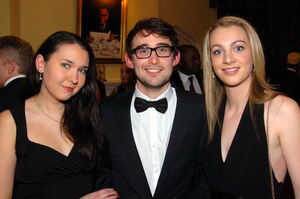London Universities Mooting Shield (LUMS): It's Not Just About Winning, It's The Learning That Counts!

Like many first years at City, I immensely enjoyed taking part in the mooting assessment; and like many this was my first experience of mooting. Having debated a bit in college, and with my eyes set on a career at the Bar I was keen to give it my all.
The mix of hard work, hours of research and gut-wrenching nerves, all crammed into a 10 minute speech in the pressurised situation of competing with four of my contemporaries, left me with an excitement to do more. Most importantly it left me with the realisation: if I had a chance to do it all again I would have done it better.
The sting of hindsight is all too often what sticks out in peoples’ recollections of their first mooting experience. If one competitor has never mooted before and their first experience is in a knock-out competition against a highly experienced grand master, who is only a few steps away from being a barrister, the result may feel almost pre-ordained.
Whilst undoubtedly there will be some positives to take from the experience, they will not be progressing further in the competition, and may have to wait for months for their next opportunity to moot. Those months in wait may end up in forgetting lessons learnt, or worse still, losing interest altogether.
Exactly! So what's the alternative?
It was for precisely this reason that 6 years ago four students from UCL decided to set up an inter-varsity mooting league, specifically for undergraduates doing their first degree, based on the ideal of developing advocacy skills through competing multiple times, on a level playing field. The key difference between LUMS and conventional mooting competitions is, it is held on a league basis, not a knock out basis. This means no matter what the result of a competitor’s last moot, they will be able to learn from their experience, come back and practise what they have learnt in the next round. With rounds set at two weekly intervals the wait will never be too long!
The competition now encompasses ten universities and takes place over nine rounds; the top two teams of the league then going head to head, in a winner takes all grand final. With a minimum of four rounds per competitor to actually compete in, and others to watch and gain tips, mooters' abilities can drastically improve over the course of the year.
So what is actually involved?

Last year three other City students, and I, competed in the London Universities Mooting Shield (LUMS). After a first meeting at Kaplan Law School, which involved tips on how to moot from their BPTC tutors, as well as top Q.C.s from sponsoring chambers, the work began. Each moot problem arrived two weeks before the round and would be taken on by two team members. Two weeks may seem like a long time to analyse a problem and write a speech, and indeed it might be, if it were not for the pile of work all LLB students have on their desk. Each round we competed in added a considerable amount of work onto our normal studies, with research often being on subjects we had not yet covered in lectures. Accuracy was going to be the key to success.
The hours spent meticulously reading the scenario, the pertinent cases and marrying the two together into a cogent legal argument were challenging, but rewarding. What’s more they presented a chance to analyse problem questions, apply the law and receive feedback from a practising Barrister. I noticed, whilst I had less time to study for tutorials, my study techniques and enjoyment of the cases were vastly improving. No more was I content with just reading the text book; I wanted to read the Judgments, to understand what different judges had said, and think how this could be applied in a factual situation. This improvement was felt in May, when studying for my exams. I had greater confidence in analysing exam questions than I had before, as I had done so throughout the year. So whilst I inevitably had some catching up to do, the skills gained more than made up for it.
Where does it all happen?
The moots themselves were held in a variety of exciting legal locations across London: From the Royal Courts of Justice and the Old Bailey, to the Allen & Overy offices and the highly regarded Barrister’s Chambers, 3 Verulam Buildings. Giving submission from the senior counsel’s bench in the Old Bailey, to a Criminal Barrister was a highlight, and something I am certain I will talk about in years to come!
How can I improve?
Once all submissions were given and the winner declared, the judges gave us individual feedback. This was invaluable. We had the full attention of a practising Barrister who told us exactly where we had performed well, and exactly where we needed improvement. For anybody unsure of whether mooting is for them, this, for me, is the clincher. Not only do you get to practise giving oral submissions, you get expert feedback from people in the practice you are seeking to join. Knowing which areas to work on for next time, and which areas you could be confident in, bolsters learning from feeling around in the dark to being guided through by an expert.
After each moot there was a social where competitors could rid themselves of the earlier nerves with a drink, and had the opportunity to discuss with other teams how they approached it: what went well, what went wrong. For those keen to network the judges also attended. They were always approachable and keen to extol wisdom and advice for those wanting to go to the Bar.
Who runs LUMS?
The competition is always run by students who competed in the previous year, which brings me to where I am now. Having enjoyed the competition so much, both socially and academically, I successfully applied to join the executive committee with the role of Master of Moots. So far the role has involved (amongst other things) a sponsorship presentation at Allen & Overy, organising a round for 45 people at City, and meeting our various sponsoring Barrister’s Sets. The transition from competitor to executive makes the competition extremely flexible and reactive to competitors’ feedback. Having competed my colleagues and I, understand what was liked about the competition, and what was unpopular and had been complained about. We have been given a huge amount of freedom to adapt the contest as we see fit. With this in mind I am looking forward to the challenges of the year ahead, and trying to make the 6th year of LUMS the most productive, learning-focused mooting event an undergraduate can compete in.
Simon Lewis
Master of Moots, London Universities Mooting Shield